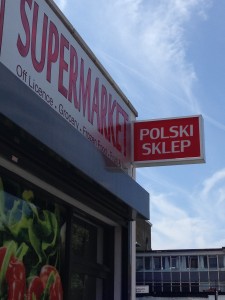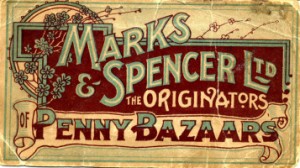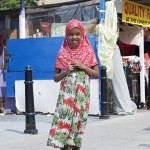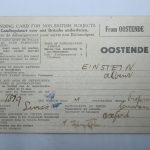19 July, 2017

I was born in Sofia in Bulgaria. I’ve been living in England since I was quite young but I’ve been travelling most of my young childhood life. As a child I travelled all over – my dad’s a Traveller, so we were in Egypt, Saudi Arabia, Gaza, Germany and Bulgaria, and always going back to Bulgaria but we always had a base in Hackney and I’d do my schooling in Hackney. When I say to people I travelled as a kid they’re always ‘Wow, that’s so exciting’ but really I didn’t have many friends; it was very lonely. I didn’t really know what was going to happen from one minute to the next. I wanted to be normal like other kids, be in school and stay home for Christmas. That’s the downside but on the other hand I think it’s made me the person I am today, it’s been interesting, it’s made me take risks and be more culturally aware of everything I do. It’s all part of what I’ve grown up with.
11 December, 2014
Blog post by Ratan Vaswani, Freelance Project Curator at Wellcome Collection India Initiative
If she has kids, they will adopt not her speech but the speech of their British school friends. If you come from an immigrant family, you’ll know how that works.
‘Would you like a receipt?’
She pronounces the silent ‘p’. The longer she spends in Britain, the more her pronunciation will even out and conform to the language community she finds herself in. But for the moment the young immigrant woman at the checkout in Sainsbury’s is operating, charmingly, in a language – English – that is still being assimilated. There’s no doubting the desire to learn and fit in, because the error is one of overcompensation. That pronunciation is about wanting to get her mouth correctly round every bit of the word, the way, when you were first learning French, you probably couldn’t resist pronouncing the ‘n’ in a third person plural verb like ‘parlent’.
She’s trying hard to get everything just right. Clean nails, tidy hair. Smartly turned out in her uniform. Her accent, her colouring, the delicate crucifix necklace: they all suggest to me she’s from somewhere Catholic in Eastern Europe. I guess the country and say ‘thank you’ in its language. I once had a girlfriend from there. The guess is correct. She smiles. Not a corporate, retail-staff-training smile, where just the corners of the mouth are raised. This is a Duchenne smile (google it), where the muscles at the corners of the eyes contract. Real, not fake. She’s got a sense of how we do cheerfulness in these parts. I hand her a fiver.
‘Cheers, honey,’ she says, with smiling eyes and an emerging trace of an East End twang.
She hands over the change. And my reseept.

Migrants have played a major part in serving shoppers and shaping our retail environment for at least a hundred years. Asian corner shops have been a familiar part of British life since the 1960s. They’re now much less common than they were. The children of Asian shopkeepers are seeking new employment opportunities, and big retail chains have muscled in on the open-all-hours street corner convenience market. In some parts of British towns today you might well come across a Polski Sklep – selling Polish specialities. But there’s Polish heritage in mainstream retail too. A Polish migrant, Michael Marks, founded Marks and Spencer as a market stall in a penny bazaar in Kirkgate, Leeds, in 1884. And Tesco was founded after World War One by Jack Cohen, the son of a Polish migrant.

6 July, 2017

Amal comes from Mogadishu in Somalia and when the photo was taken she had been in Hackney for 3 days.
26 March, 2019

A landing card relating to Albert Einstein’s escape from Nazi Germany has been discovered and put on display for the first time at the UK Border Agency’s national museum in Liverpool.
The Jewish physicist fled from his homeland when Adolf Hitler came to power. A bounty was put on his head by the Nazis, who named him an enemy of the regime.
Landing cards were completed by all passengers arriving in Britain. Einstein’s card is proof of his journey from Ostende, Belgium, to Dover on 26 May 1933. On the reverse, he wrote that he was bound for Oxford.
After nearly 80 years stored at Heathrow Airport, the landing card was discovered by curators from the museum, which is called ‘Seized! The Border and Customs Uncovered’.
Assistant curator Lucy Gardner said:
“We didn’t know this landing card ever existed until we visited UK Border Agency officers at Heathrow. We were keen on acquiring any documents relating to immigration, but were stunned to find paperwork relating to such a prominent historical figure as Albert Einstein.
“What’s remarkable is that the landing card bears his signature, has his profession as ‘professor’ and lists his nationality as Swiss. This shows how Einstein had renounced his German citizenship only weeks earlier in angry reaction to Nazi policies.
“This tiny piece of paper brings to life Einstein’s escape from the Nazis to England. This country became a safe haven for him until he eventually settled in the US.”
‘Seized! The Border and Customs Uncovered’ is located in Liverpool’s Merseyside Maritime Museum.






